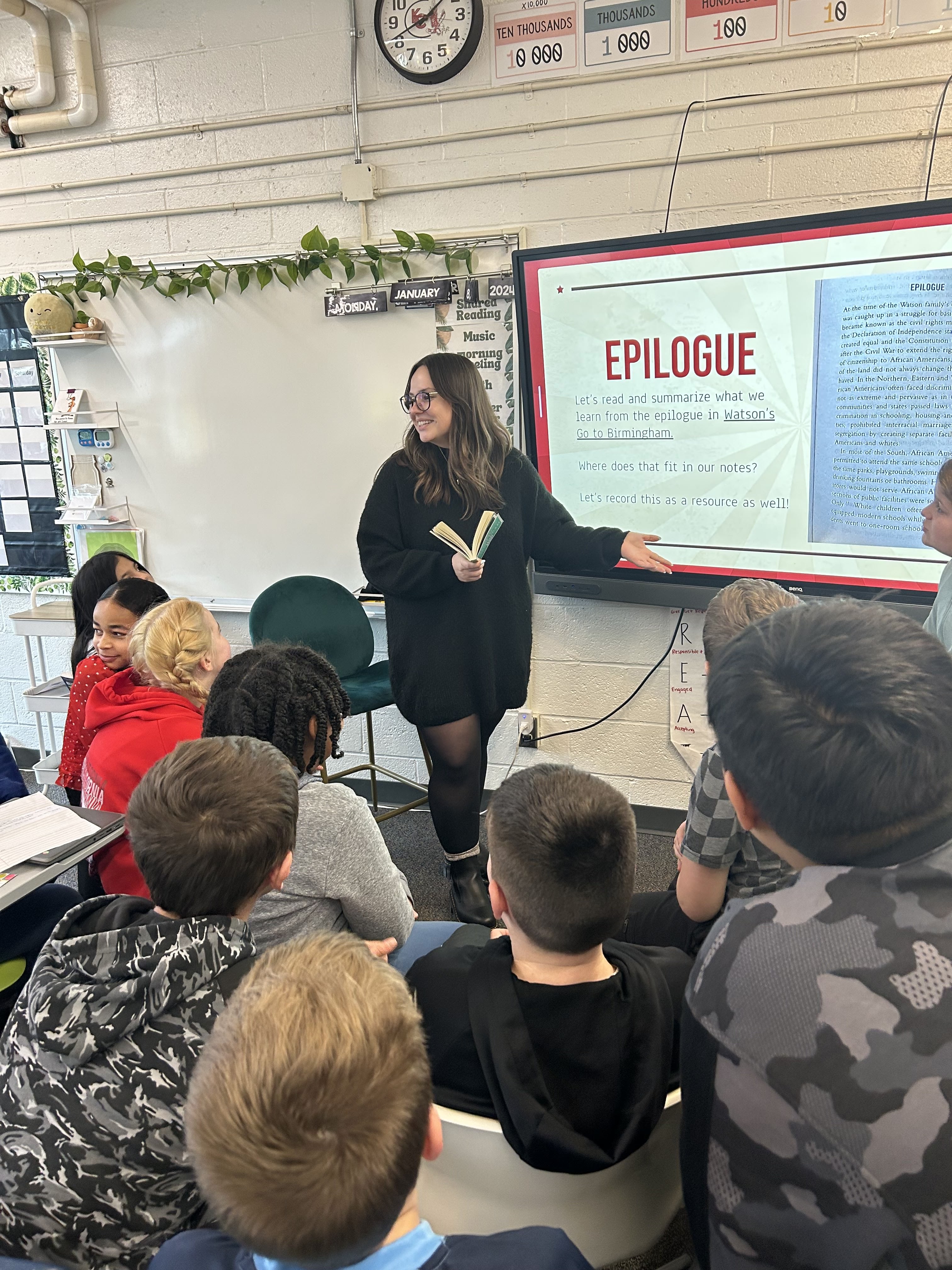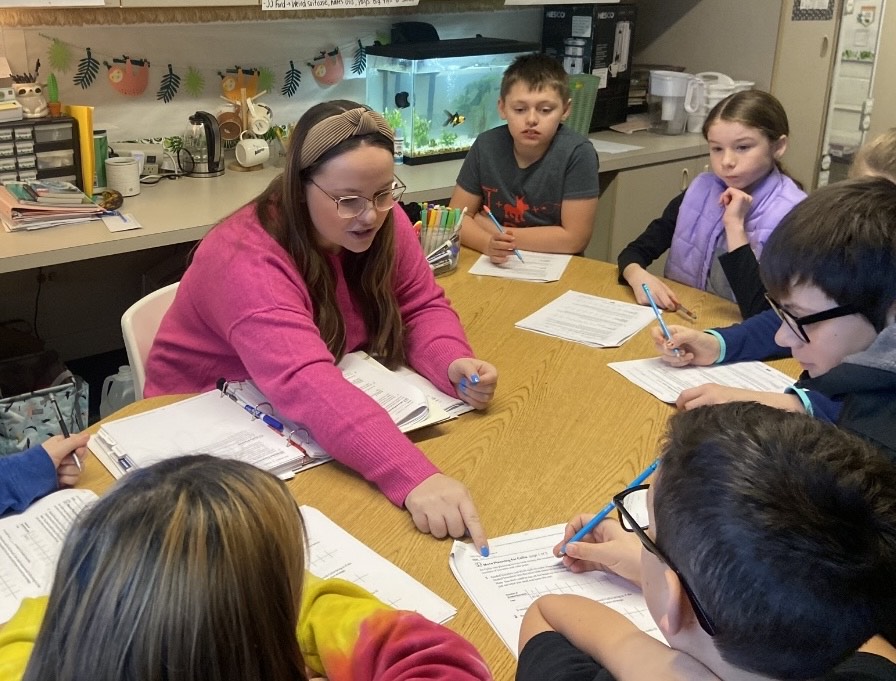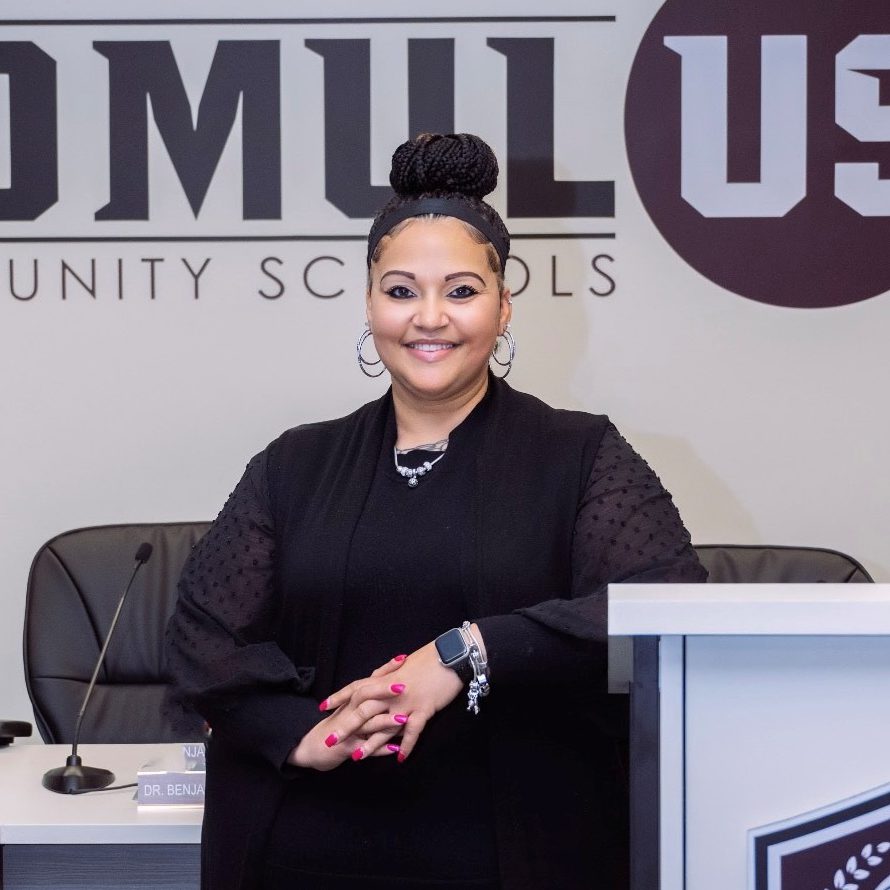In daily time crunch, AI is a time machine

Fourth-year teacher Allison O’Connell challenges herself every day to engage a wide variety of fifth graders in her Kent City classroom and help them grow – whether they are performing at, below or above grade level, English Language learners (ELL), or students with special needs.
It’s not always easy.
“It’s natural for teachers to want to do more for students,” the MEA member said. “But how? We’re already running at maximum overdrive. We’re working way past contract hours. We want to address every need, but when the rubber hits the road there’s just not enough time in the day.”
This year O’Connell has seen a way to scrounge up more minutes: by assigning AI to do some of her routine work. “It doesn’t take me long to grade the spelling test, for example, but would I love to have 20 more minutes in my day? Who wouldn’t?”
She saves more moments by using an AI website for ELL students that a colleague showed her recently. It takes questions she asks of students – such as “What was the best part of your winter break?” – and produces sentence stems for beginning English speakers to answer.
The best part of my winter break was _________. I enjoyed _________ over my winter break.
“It’s something so simple, but it reduces that cognitive load that I think all teachers are constantly carrying throughout the day,” O’Connell said.
In addition, O’Connell glimpses into the future via the University of Michigan Center for Digital Curricula and summer work she took on last year. Researchers at the UM Center are evaluating how well a ChatGPT grader can give feedback on students’ written work.
After her class wrote fictional adventure stories, O’Connell shared her four-point rubric, samples of work for each level 1-4, and her comments on students’ strengths and weaknesses. Once trained, the computer scored and commented on all student stories.
“Two of my coworkers on my fifth-grade team did this as well, and we couldn’t identify which ones we had written—quite a bit of time had elapsed since we’d graded them,” O’Connell said. “I graded the rest without knowing what the ChatGPT grader would say so I could authentically compare.
“There were minor differences, but nothing significant – a one-point difference here or there, wording I would change – nothing that I would say, ‘Oh, that’s incorrect.’”
 O’Connell learned of the UM Center because Kent City teachers utilize open-source curricular materials designed there since the onset of COVID. Called Roadmap, the freely available K-8 learning platform of lessons, content and tools is digital, interactive and collaborative.
O’Connell learned of the UM Center because Kent City teachers utilize open-source curricular materials designed there since the onset of COVID. Called Roadmap, the freely available K-8 learning platform of lessons, content and tools is digital, interactive and collaborative.
Roadmap is not AI-driven, but students enjoy engaging with the materials – developed by subject and grade – because they choose how they can learn and demonstrate what they know, O’Connell says. Last summer she joined the team of educators writing and vetting Roadmap lessons.
Now AI tools are being explored to possibly embed in Roadmap – such as the ChatGPT grader – which could deliver targeted feedback to students and teachers quickly and accurately. Such information can help O’Connell better help kids, and that’s what drives her every day.
An Ohio native who found she wanted to be an educator in a high school club, O’Connell loves teaching but worries about career demands if someday she starts a family of her own.
“ChatGPT gives me hope to sustain a career – that I can accommodate students, weave in creativity, and make content engaging without being overwhelmed spending hours upon hours doing it.”
RELATED STORIES
Get ready—AI is transformative: ‘We have to focus on the speed of change’
CMU prof: ‘We can do this. We have to.’
Veteran: AI ‘democratizes education’
SVSU profs: AI can boost creativity
ICYMI: Free AI resources for your district



